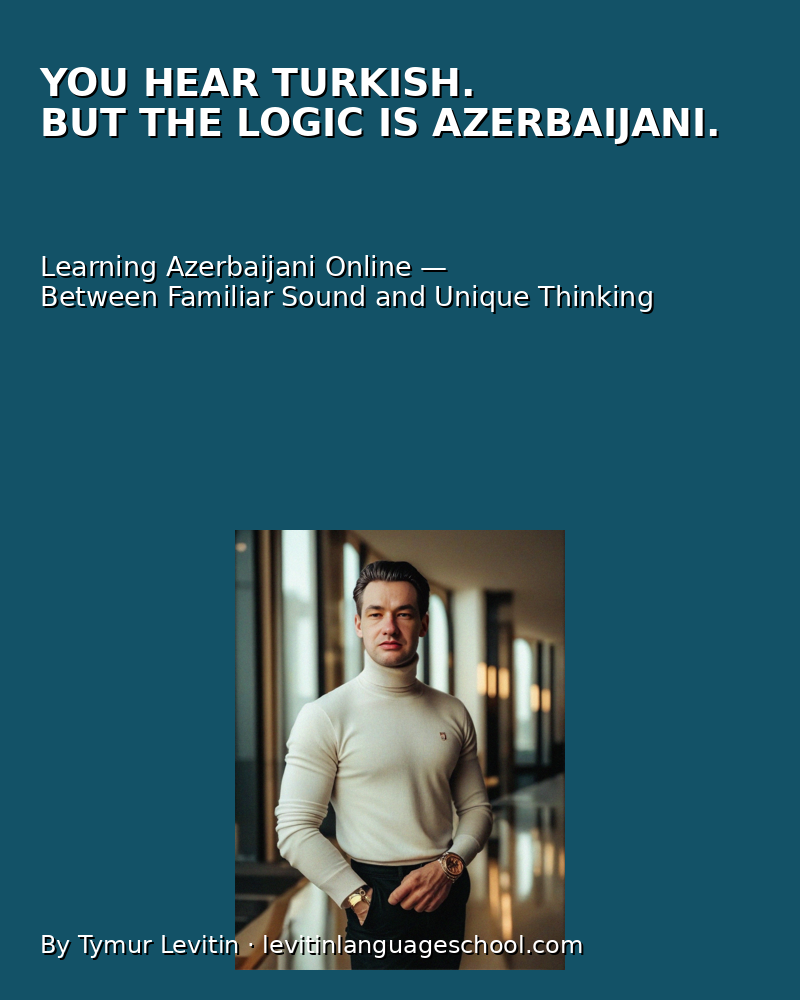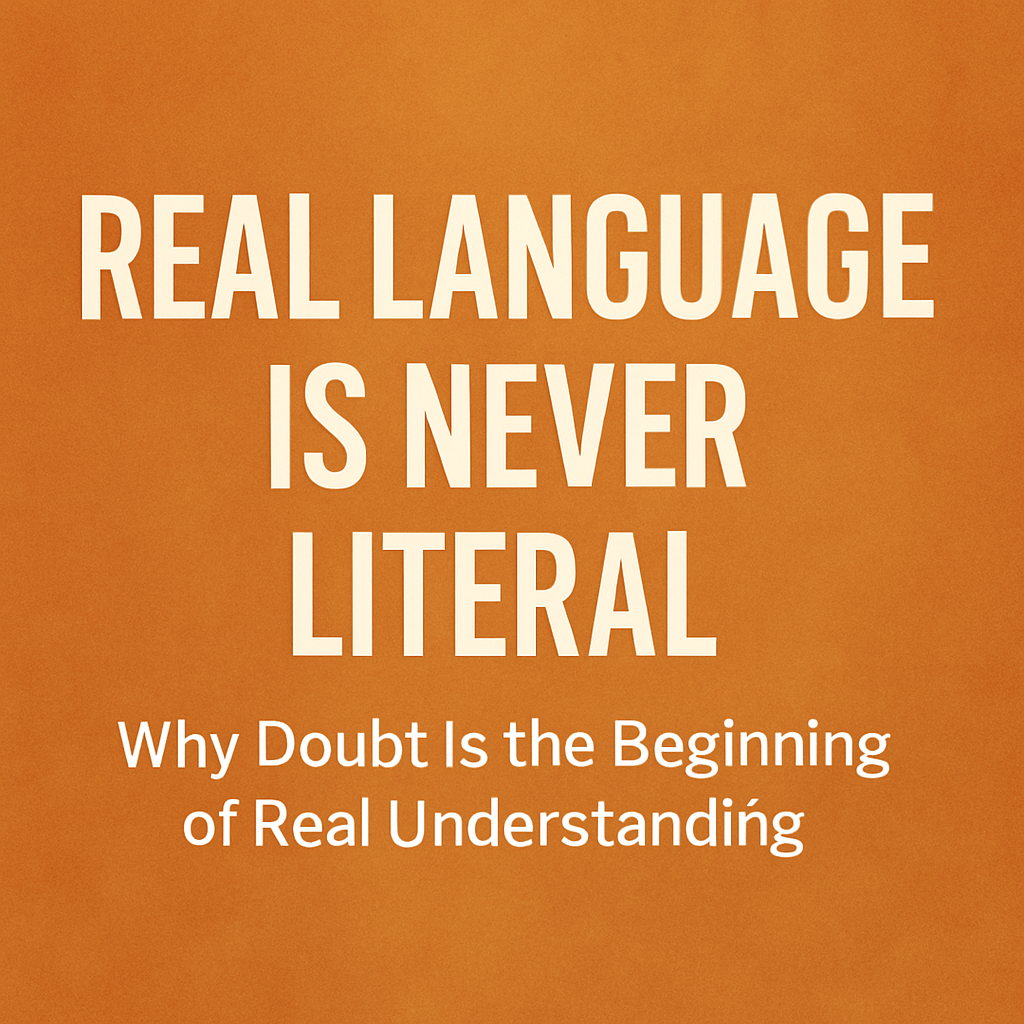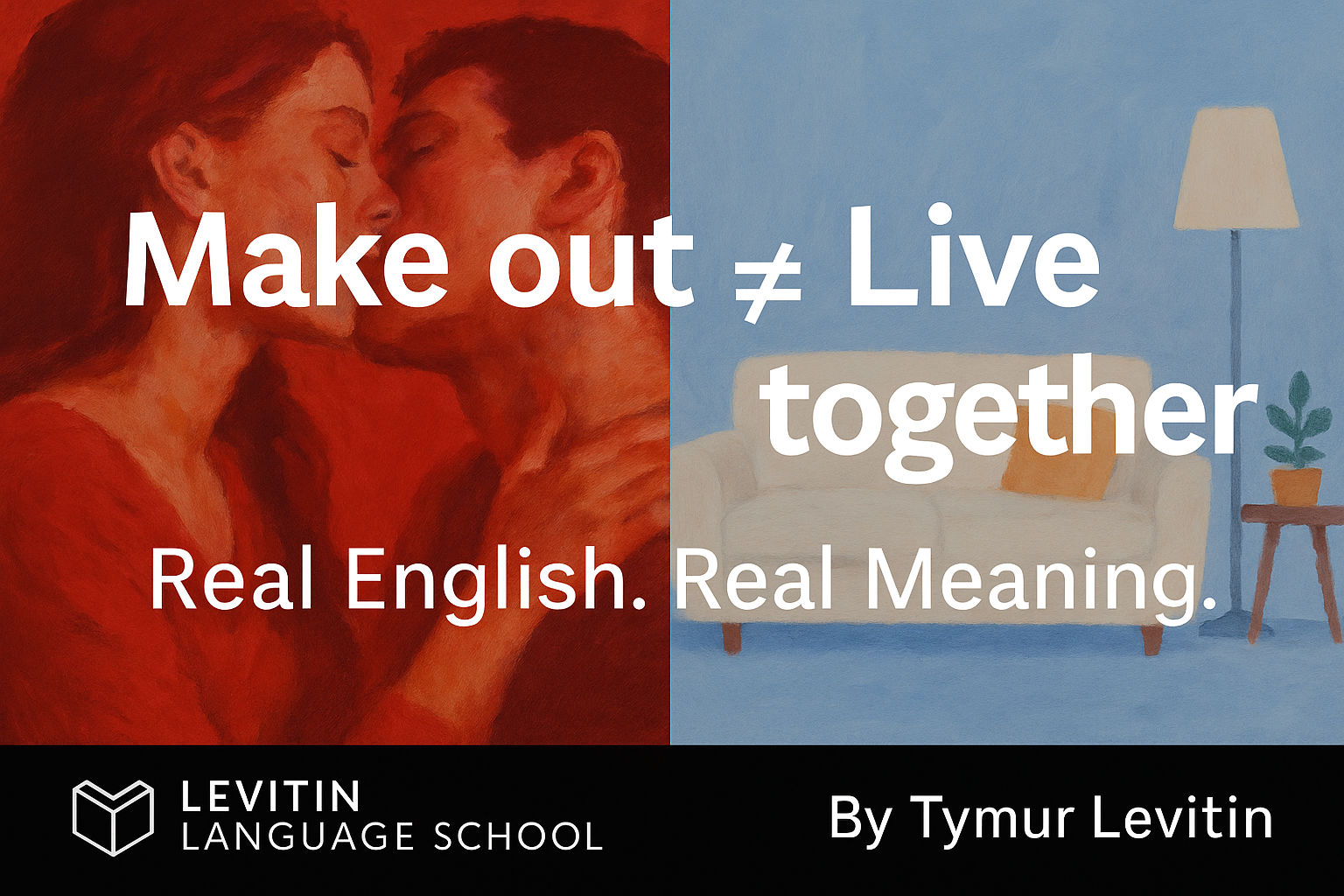Why Doubt Is the Beginning of Real Understanding
“If you’re not sure what a word really means — good. That means you’re thinking.”
— Tymur Levitin
Author’s Column — The Power of Doubt in Language Learning
Part 1 of the series
Literal Translation Is a Reflex — Not a Skill
Most language learners start with this question:
“How do I say this in English?”
“What’s the German word for that?”
That’s natural. That’s how we survive in a new language.
But if we stay in that mode — we don’t grow.
Because real language is never about replacing words.
Chodzi o replacing ways of thinking.
Words Are Not Equivalents — They’re Decisions
In every sentence, we make choices:
- Do I sound direct or diplomatic?
- Is this neutral or emotional?
- Am I giving information — or framing it?
Literal translation ignores all that.
It assumes that words = meaning.
But they don’t.
Words are only carriers. Meaning is what we load into them.
Doubt Is the First Sign of Real Thinking
When students say:
“Wait, that doesn’t sound right…”
“But that’s not what I meant…”
“It’s correct, but it feels wrong…”
That’s not confusion.
That’s the beginning of fluency.
Because they’re realizing something critical:
Just being grammatically correct doesn’t guarantee understanding.
They’re starting to think in the language — not just translate into it.
Every Word Comes with Luggage
Let’s take a simple example:
“I want to go.”
Seems clear, right?
But compare:
- I want to go.
- I’d like to go.
- I’d love to go.
- I’m planning to go.
- I might go.
- I was thinking of going.
All describe the same action — but each one carries a different energy.
Literal translation doesn’t capture that.
Only doubt — “Which one feels right here?” — leads us to real mastery.
Doubt Forces Us to Compare Systems
Think of students switching between languages:
- Angielski: “I should go.” → internal suggestion
- German: “Ich sollte gehen.” → hypothetical, or polite distancing
- Ukrainian: “Я маю йти.” vs. “Мені слід йти.” — different levels of pressure
- Spanish: “Debería ir.” → soft recommendation, often emotional
- Russian: “Я должен идти.” vs. “Мне нужно идти.” — duty vs. necessity
They all look similar.
But unless you doubt the literal, you’ll miss the meaning.
Teachers Must Train Doubt — Not Suppress It
When a student says something that’s “not wrong,” but “not quite right” —
our job isn’t just to correct them.
It’s to ask:
“What did you want to say?”
“What feeling were you trying to express?”
“What part felt off?”
That’s how we build thinkers — not mimics.
Summary: Doubt Is the Method, Not the Obstacle
We don’t punish doubt.
We use it to teach students:
- that language is a series of choices
- that words come with tone, expectation, rhythm, history
- that being “right” is never enough
- that “wrong” is often more interesting than “correct”
Because real language isn’t just spoken.
It’s felt, chosenoraz lived.
Related posts from our blog
→ Real Language Is Never Literal (Author’s Column: The Language I Live)
→ Bariera językowa nie dotyczy języka
→ Why We Don’t Promise You’ll Learn English in 30 Days
→ Grammar Is How We Think
O autorze
Tymur Levitin — founder, director, and senior instructor at Levitin Language School / Start Language School by Tymur Levitin
🔗 Poznaj autora →
© Tymur Levitin. Wszelkie prawa zastrzeżone.























